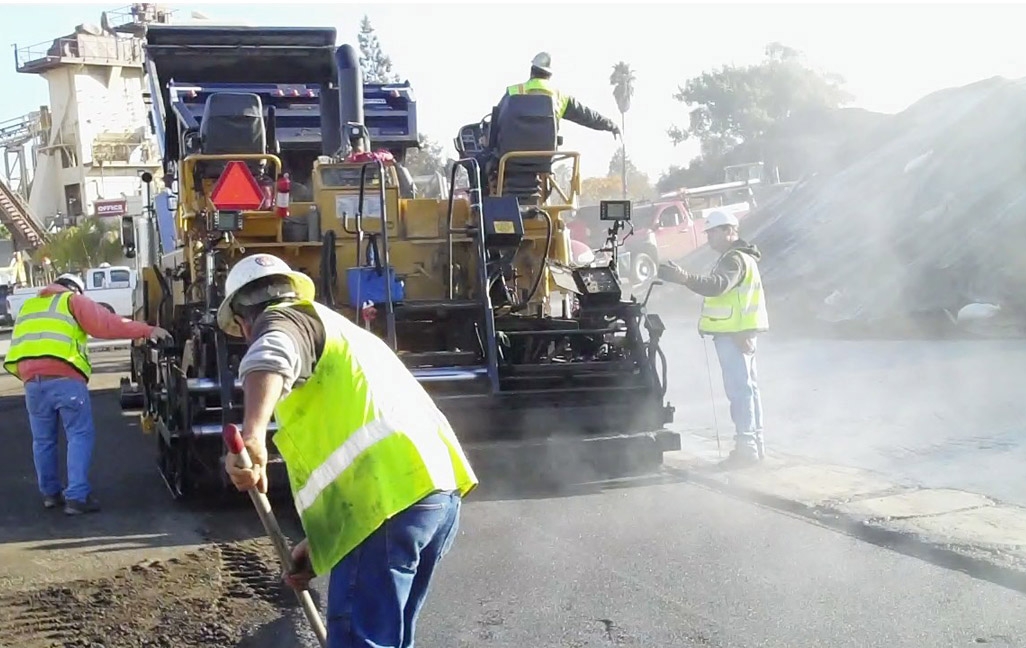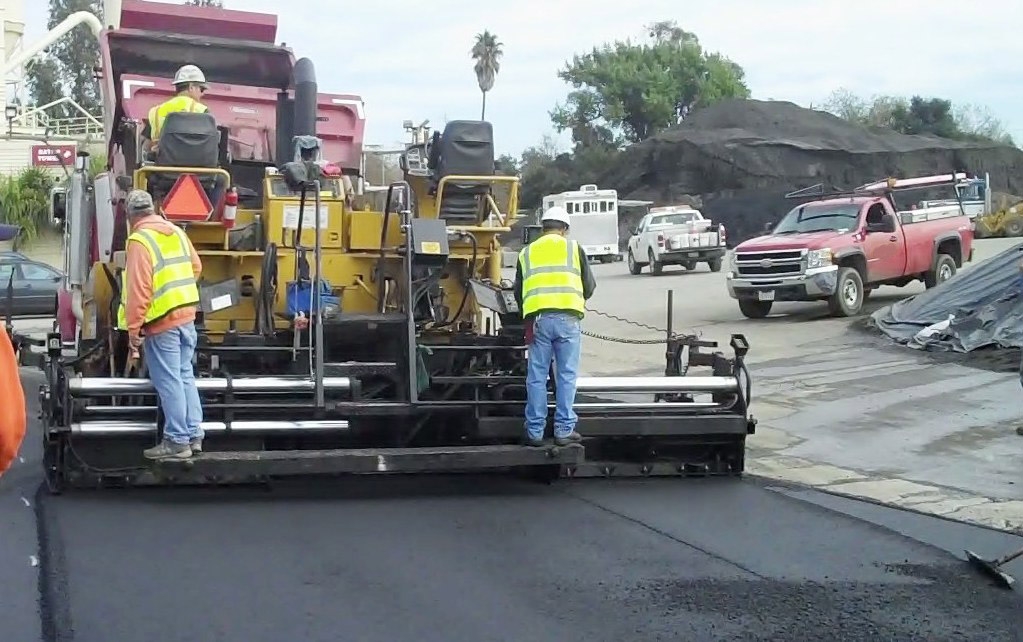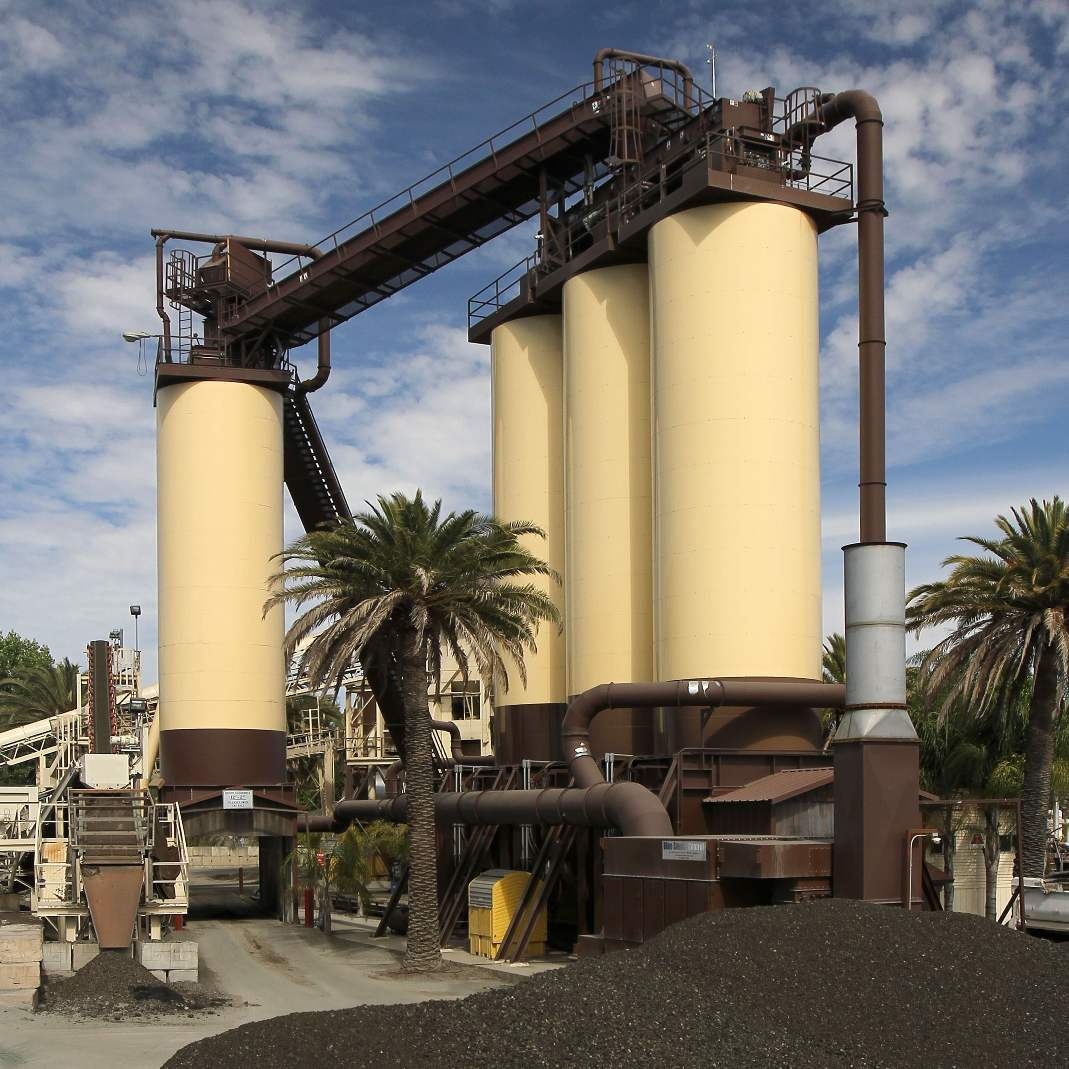LOWER EMISSIONS AND ENERGY CONSUMPTION YIELD SUPERIOR ASPHALT
Warm-mix asphalt technologies allow the producers of asphalt pavement material to lower the temperatures at which the material is mixed and placed on the road.
Though BoDean Company has built a reputation for quality, efficiency, sustainability and service, our desire to improve each day has led to the use of newer, more responsible and efficient technologies. Though the plant had been in operation for some time, the year 2009 led to one of the company’s greatest technological achievements when a warm-mix injection system was installed at our Santa Rosa based asphalt plant. Warm Mix Asphalt Pavement (WMA) is an achievement which we are proud to say is of superior quality and benefit to our customers than traditional Hot Mix Asphalt which has been in existence for more than 100 years.
How Warm Mix Asphalt is Produced
Asphalt is typically produced at temperatures over 320-degrees Fahrenheit. These high temperatures create what is known as “blue smoke”, an emission that can be easily detected by the odor associated with asphalt paving projects. Higher temperatures also lead to greater oxidation which can lower a pavement’s life span.
However, by injecting atomized water molecules into the hot binder oil during the production process, BoDean Company can reduce the temperatures down below 275-degrees. This temperature reduction eliminates harmful gases, or blue smoke, and almost all of the obnoxious odors associated with paving, as well as greatly reducing CO2 gases and the energy consumption associated with the production process. Through our stringent and highly engineered production process, we also have the ability to produce warm mix with project-specific additives to meet the needs of our customers.
Benefits of Warm Mix Asphalt
Including its ability to save energy and reduce emissions, the benefits of using the innovative warm mix technology are great.
Benefits to using WMA as opposed to traditional hot mix asphalt:
- Better able to pave in low temperature weather conditions – Because WMA cools at a slower pace than traditional hot mix asphalt, it can be placed more successfully in lower temperature weather thus extending the paving season and also making night paving a more viable option.
- Achieve compaction on the mat with fewer roller passes leading to increased customer profitability and competitiveness
- Travel further to job site without fear of losing temp because it cools more slowly than hot mix pavement
- Better and longer workability – because it is versatile nature, WMA can be used successfully in a variety of applications and thickness ranges and is durable enough to withstand high traffic.
- Reduces and minimizes harmful gases to workers thus increasing worker safety and health
- Reduces temperatures over 50-degrees leading to increased worker safety, health, comfort and inevitably performance
- Energy and Environmental Design (LEED®) credits
- Reduced temperature minimizes oxidation by preserving high end elements in the asphalt binder thereby leading to a longer pavement life span
- Increased TSR (Tensile Strength Ratio) has been observed when WMA is used. TSR is a measure of the force required to pull apart a material.
- Knowledge that you are doing the right thing by the environment


SPECIFICATIONS AND ENVIRONMENTAL STANDARDS
According to the Center of Accelerating Innovation, here’s how WMA works: “WMA technologies reduce the viscosity (the thickness) of the asphalt binder so that asphalt aggregates can be coated at lower temperatures. The key is the addition of additives (water-based, organic, chemical, or hybrids) to the asphalt mix. These additives allow the asphalt binders and asphalt aggregates to be mixed at the lower temperatures. Reducing the viscosity also makes the mixture easier to manipulate and compact at the lower temperature.”
BoDean Company works to offer our customers products that increase sustainability and environmental responsibility. Warm mix asphalt qualifies for LEED Credits thanks to the technology’s ability to lower emissions and reduce energy usage. Warm mix asphalt production and application conserve fuel by requiring significantly less energy making it a product geared towards sustainability and green-living.
WMA has been widely used in much of Europe and is becoming more and more recognized for its innovative technology and long list of benefits. The Center for Accelerating Innovation states that “at least fourteen state highway agencies have adopted specifications to accommodate WMA, and more than forty states have roads paved with WMA. This green technology is increasing the quality of our roads and our environment.”
Selecting Warm Mix Asphalt
From healthier working conditions to sheer performance, WMA is a unique and beneficial product to consider for your next project. When you consider using warm mix asphalt for your project our expertly trained consultants are ready to answer any questions you may have. Call us today at (707) 576-8205 to speak with a BoDean Company specialist or click here to request a free online quote.
